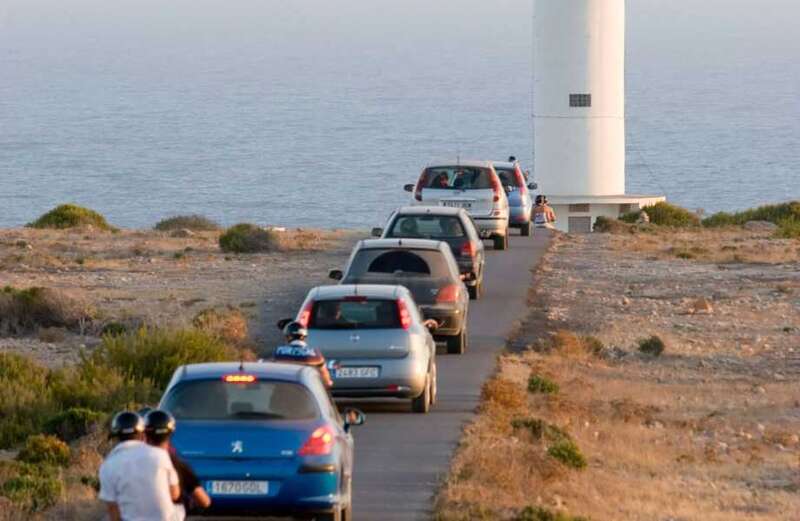BRIT holidaymakers have been warned that they risk forking out £9000 on a Spanish hotspot island if they flout an important driving rule.
Formentera in the Balearics is famed for being "one of the jewels of Spain", but its authorities are toughening up access in a bid to better protect its nature.



This lesser-known European island is just over two hours from the UK and popular with A-listers for its Caribbean-like white beaches.
But with tourist saturation currently the buzzword in numerous other holiday locations, including neighbouring Majorca and Ibiza, the local council is taking no chances with Formentera's reputation.
All visitors are being reminded that they have to register their vehicles before driving them to the island between June 1 and September 30 this year.
 Selfish drivers mount pavement outside family homes putting pedestrians at risk
Selfish drivers mount pavement outside family homes putting pedestrians at risk
The council said in a statement: "Formentera wants to continue being the most paradisiacal destination in Spain, a place where rest is just that, rest, and where nothing reminds us of the saturation of large cities or where going from one point to another on the island becomes an odyssey".
In order to achieve this, the island regulates the entry and movement of vehicles in the high season to limit traffic "with the aim of protecting the environment".
During these dates, visitors must use Formentera.eco. to register their car or motorcycle in advance.
Once authorisation has been obtained, each vehicle must pay a fee of €6 per day in June and September.
But in the peak months of July and August this tax goes up to €9 per day.
Formentera council also stresses that accessing the island by caravans or campers is totally prohibited, since camping is not allowed on the island.
Rental vehicles from outside the island cannot access Formentera either.
Failure to comply can lead to significant financial penalties, ranging from €1,000 to €10,000 (£850 to £9000), in the most serious cases, the authorities said.
Formentera has rolled out a system of video cameras that automatically detect vehicles that have not been registered and automatically makes the penalty proposal.
Elsewhere in Spain, Brits are being screamed at to go home as anti-tourism protests cause chaos across Majorca.
 Top ten reasons learners fail their driving test revealed by the DVSA
Top ten reasons learners fail their driving test revealed by the DVSA
Footage showed the moment furious locals marched through Palma and booed and taunted Brit diners.
The 10,000-strong hoard of demonstrators took to the streets to vent their anger over tourist saturation as they chanted "Let's save Majorca. Foreigners out".
A Brit caught in the chaos described how she fled before things "turned nasty" as protesters shouted at and mocked UK diners as they passed.
Polly Taylor told the Mail: "It was like a storm was coming...then the noise from the protesters just got louder and louder and we were swamped with them".
Polly said her and her mates were caught in a "very intimidating" sea of people and revealed the experience had put her off visiting the island again.
In Menorca, angry locals closed off their streets to keep tourists out in another blow to holidaymakers.
The 195 homeowners of Binibeca Vell, dubbed the "Mykonos of Spain", don't want any visitors before 11am and after 8pm in a bid to prevent tourists disrespecting private property.
Meanwhile, another holiday hotspot sparked fury over its anti-tourism plans, which include hunting "illegal" visitors and a "fascist" list of foreigners.
Residents and businesses in Girona, Spain, argue they have reached their limit with "overtourism" and called for urgent measures as "it is already too late".
Locals in the Catalan town proposed increasing the number of patrols to find illegal tourist apartments and creating a list of all foreign residents living in Girona.



































